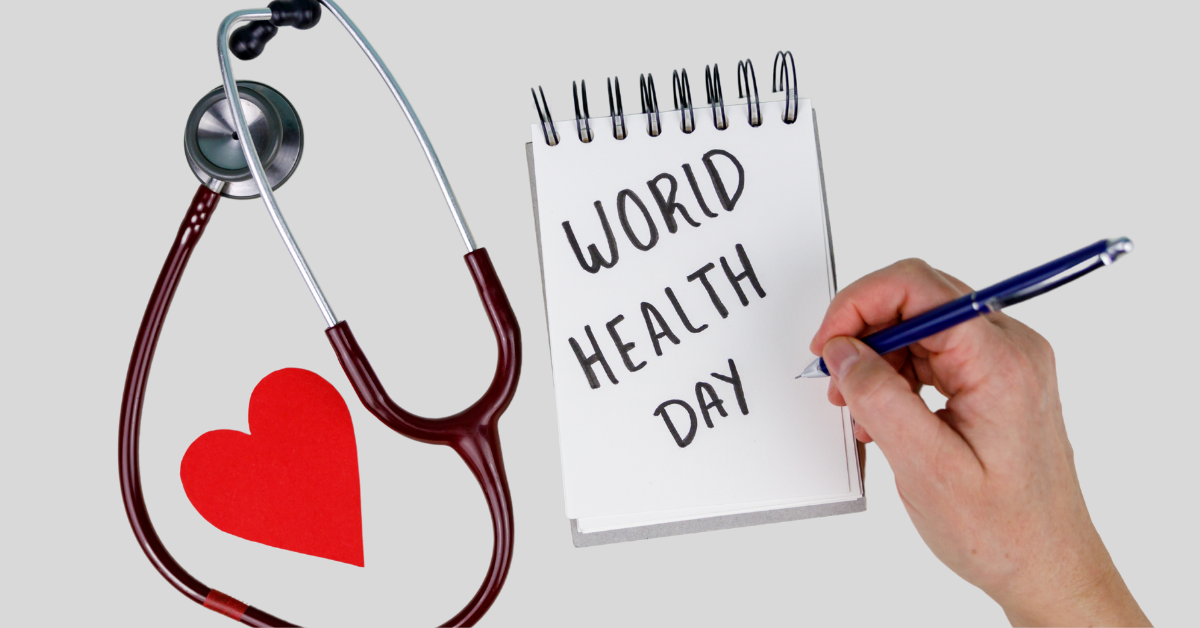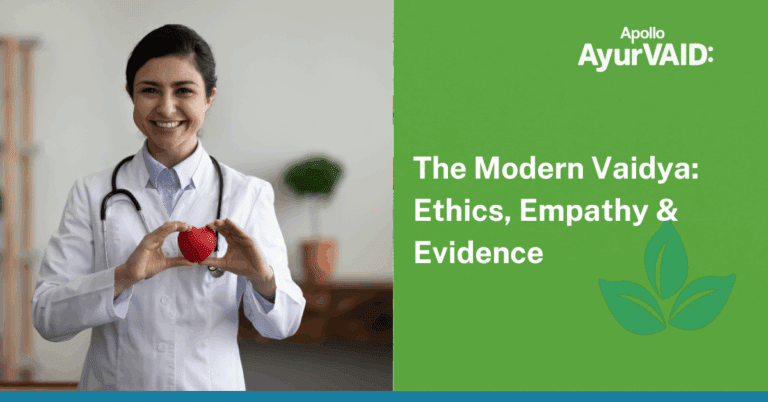What is World Health Day?
Every year, World Health Day is celebrated to highlight a vital health issue to raise awareness and inspire global action. World Health Day information often revolves around global health challenges, and this year’s theme, “Healthy Beginnings, Hopeful Futures,” focusses on mother and baby health — an area that remains critical despite the medical advancements we have made. What is World Health Day really about? It’s a day to remind us that health is not just about survival but about thriving. According to the World Health Organization (WHO), around 810 women die every day from preventable causes related to pregnancy and childbirth, and 2.5 million newborns die each year within the first month of life. While modern healthcare has made great strides in reducing these rates, there is still a significant gap in the accessibility and effectiveness of care, especially in integrative medical care.
This is where Ayurveda steps in. Research suggests that many of the maternal complications could be alleviated with proper preconception and prenatal care—areas where Ayurveda excels. Ayurveda doesn’t just focus on survival; it prioritizes long-term well-being through holistic care. By focusing on preconception health, maternal nutrition, and postnatal recovery, Ayurveda provides a complementary approach that can work alongside modern medicine to ensure both mother and child receive the best possible start.
This blog explores the importance of World Health Day 2025 through the lens of Ayurveda and how it can transform maternal and infant health.

The Road Starts Before Birth: Ayurveda Method of Preconception Treatment
Ayurveda stresses Garbhadhana Samskara (preconception care), a critical moment when both parents get their bodies and minds ready for a safe pregnancy, instead of concentrating on the mother alone. The goal is not only to conceive but also to ensure the best possible environment for the baby’s growth.
Ayurveda names four key elements for conception—known asGarbha Sambhava Samagri :
Ritu (Timing): Conception depends on a woman’s fertile time. Ayurveda says the ideal period is the six to sixteen-day cycle after menstruation. Moreover, effective conception depends much on the mental and emotional state of the couple during this period.
Kshetra (Womb): Implantation and foetal development depend on a healthy uterus. Any uterine imbalance—including inflammation or irregular menstruation—can influence the result of pregnancy.
Ambu (Nourishment): Ayurveda emphasises the need for a well-balanced diet high in vital nutrients to boost fertility and prolong a healthy pregnancy.
Beeja (Sperm and Ovum): A successful pregnancy depends on healthy sperm and ovum. To achieve this, Panchakarma therapies are administered. A body that is detoxified and well-nourished helps in the creation of healthy reproductive cells.
Ayurveda guarantees a firm basis for a child’s health by balancing these elements via Panchakarma treatments (cleansing treatments ), dietary changes, stress management, and spiritual well-being—a concept very closely related to the importance of World Health Day this year.
Pregnancy and Postnatal Care
The journey of maternal and infant care starts after conception has taken place. Pregnancy is a period of metamorphosis for the woman as well as for the developing baby; her body changes greatly, physically and emotionally. Ensuring a good pregnancy and safe birth depends mostly on proper prenatal care, supportive surroundings, and a diet sufficient for this process. Ayurveda has a unique approach to pregnancy care- the Masanumasika Garbhini Paricharya, or the monthwise diet and lifestyle protocol that a pregnant woman should follow for a healthy pregnancy and smooth childbirth. This regimen helps in dealing with common issues with pregnancy like nausea, acidity, indigestion, etc, and also with serious health complications like gestational diabetes, hypertension, anemia, postpartum thyroiditis, and depression.
Often disregarded, the Sutika Kala(postnatal period) is one of the most important stages for a mother’s recovery and a newborn’s adaptation to life outside the womb. Ayurveda sees the first six weeks after childbirth as a critical period during which the mother’s body heals dramatically.
Postnatal Period: Physical and Emotional Challenges
- Uterine recovery and Lochia discharge: Usually producing cramps, the uterus contracts back to its normal size. As the body destroys pregnancy-related tissues, vaginal discharge—lochia—persists for weeks.
- Hormonal Fluctuations: The sudden drop in estrogen and progesterone can lead to hair loss, sweating, mood swings, and fatigue.
- Postpartum Depression & Anxiety: Many mothers experience “baby blues,” while some face severe postpartum depression, struggling with sadness, irritability, or feelings of inadequacy.
- Breastfeeding Challenges: Issues like engorgement, low milk supply, or difficulty latching can make the early days of feeding stressful.
- Other health issues include lower back pain, recovery after LSCS, infections, bowel irregularities.
A structured Ayurveda postnatal care plan is essential to address these issues and ensure a smooth transition into motherhood.
Ayurveda’s Postnatal Care: Healing from Within
Ayurveda recognizes that a mother’s health directly impacts her child. A well-cared-for mother not only heals faster but also ensures better nourishment for her baby. Some key aspects of Ayurvedic postnatal care include:
- Nutrition for Recovery & Lactation
Warm, easily digestible meals help rebuild strength and prevent digestive disturbances.
- Wound Healing & Body Strengthening
Vaginal Fumigation and Herbal Sitz Baths aid perineal healing and promote faster recovery from episiotomies and C-sections. Abhyanga (Oil therapy)strengthens muscles and relieves body aches.
- Mental & Emotional Well-Being
Ayurveda stresses the importance of emotional stability during the postpartum phase. Gentle yoga, meditation, and breathing exercises help calm the mind and reduce anxiety.
By following these principles, mothers can experience a smoother recovery, better energy levels, and a stronger bond with their newborns. At Apollo AyurVAID, these evidence-based principles are integrated into modern healthcare, offering personalized care for expecting mothers and newborns. With precision Ayurveda therapies for better pregnancy outcomes, postnatal recovery, and neonatal health, Apollo AyurVAID can serve as a valuable complement to conventional maternal and infant care.
Bridging the Gap: Why This Matters for World Health Day 2025
Globally, complications during pregnancy and childbirth remain a leading cause of death and long-term health issues among women. Similarly, newborns face preventable health risks due to inadequate care and nutrition. This World Health Day, the focus is not just on saving lives but on ensuring quality maternal and newborn care. The journey to a hopeful future begins with a healthy start. By combining traditional wisdom with modern medicine, we can ensure a stronger, healthier generation.
A mother’s well-being directly shapes the future of her child. Preconception planning, pregnancy care, and postnatal support are not luxuries—they are necessities. While medical science has improved survival rates, it’s time to shift the focus toward holistic recovery, emotional support, and long-term health. This World Health Day 2025, let’s commit to creating a world where every child is born into health and every mother experiences a safe, supported postpartum journey.

References
Sharma, B. (2023). Garbha Sanskar: Ancient wisdom of Ayurveda for healthy progeny. Journal of Ayurveda and Holistic Medicine (JAHM), 11(2).
![]()
Nath A, Kumar Goswami D, Sutika Paricharya – Post Natal Care in Ayurveda. J Ayu Int Med Sci. 2023;8(8):97-101.
![]()
Sharma S, Dangwal A, Pandey R. Navjata Shishu Paricharya (Neonatal Care) In Ayurveda: A Review. J Ayu Herb Med 2019;5(3):106-109.
![]()
Ashwini R. Metangale, Jaiprakash S. Ukey, Importance of Sutika Paricharya: A Review. J Ayu Int Med Sci. 2022;7(2):60-63.
![]()
Neiger R. Long-Term Effects of Pregnancy Complications on Maternal Health: A Review. J Clin Med. 2017 Jul 27;6(8):76.
![]()






